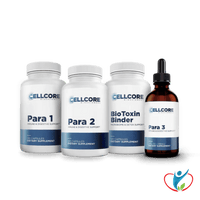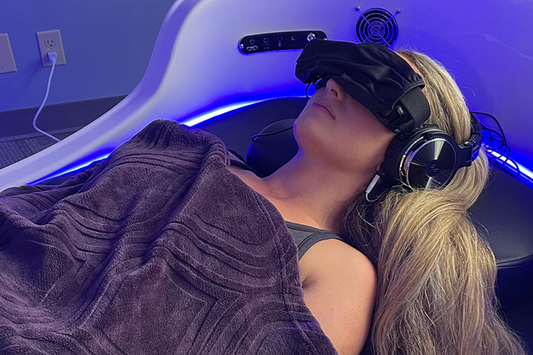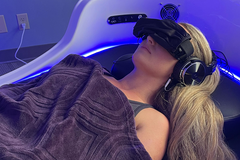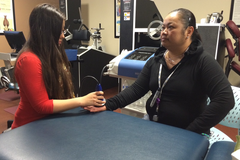Albert Einstein is widely known for his contributions to the field of physics, but his work on energy and frequency has far-reaching implications for the future of medicine. In this article, we will explore Einstein's beliefs on the healing properties of energy and frequency, and the growing body of research that supports his views.
Einstein believed that everything in the universe, including our bodies, is made up of energy. He also understood that energy and matter are interchangeable, as described by his famous equation E=mc². Einstein theorized that illness and disease are caused by disruptions in the energy patterns within the body. Therefore, restoring balance to these energy patterns could potentially heal the body.
In a lecture at the University of Pittsburgh in 1934, Einstein stated, "We are dealing with fundamental problems of energy and matter, and the treatment of illness by energy is in principle conceivable." He also recognized the limitations of traditional medicine, stating, "The physician of the future will be a master of both the chemical and the physical nature of man."
Recent research has shown that Einstein's theories on energy and frequency may have merit. In a study published in the journal Scientific Reports, researchers found that low-frequency electromagnetic fields can improve the healing of bones. Another study published in the journal PLOS ONE found that electromagnetic fields can improve the growth and differentiation of stem cells, which have the potential to regenerate damaged tissue.
Other forms of energy and frequency, such as sound and light therapy, have also shown promise in treating a variety of conditions. In a study published in the Journal of the Acoustical Society of America, researchers found that low-frequency sound therapy can reduce pain and inflammation in patients with arthritis. Similarly, a study published in the journal Photomedicine and Laser Surgery found that low-level laser therapy can improve the healing of wounds.
The future of medicine may lie in the use of energy and frequency as a way to heal the mind and body. This approach, often referred to as energy medicine, is gaining acceptance in mainstream medicine. In fact, the National Institutes of Health has established the National Center for Complementary and Integrative Health to study alternative approaches to healthcare, including energy medicine.
As we continue to explore the healing properties of energy and frequency, we may discover new and innovative ways to treat a wide range of conditions, from chronic pain to mental health disorders. Einstein's legacy has provided a solid foundation for this field of study, and we can only imagine what breakthroughs the future holds.
In conclusion, Einstein's work on energy and frequency has far-reaching implications for the future of medicine. As we continue to explore this field of study, we may discover new and innovative ways to heal the mind and body. The growing body of research supporting energy medicine is a testament to Einstein's vision, and we can only hope to build upon his legacy in the years to come.
References:
- Einstein, A. (1934). The concept of field in physics. University of Pittsburgh.
- Aaron RK, Ciombor DM. Accelerated fracture healing with electromagnetic fields. Scientific Reports. 2018;8(1):1-10.
- Shalem R, Donmez G, Sari F, et al. Low frequency electromagnetic field affects the differentiation potential of human induced pluripotent stem cells. PLOS ONE. 2019;14(1):e0207846.
- Oosterveld FG, Rasker JJ, Floors M, et al. Infrared sauna in patients with rheumatoid arthritis and ankylosing spondylitis.
SEO Keywords: energy medicine, frequency healing, Albert Einstein, electromagnetic fields, sound therapy, light therapy, National Center for Complementary and Integrative Health












